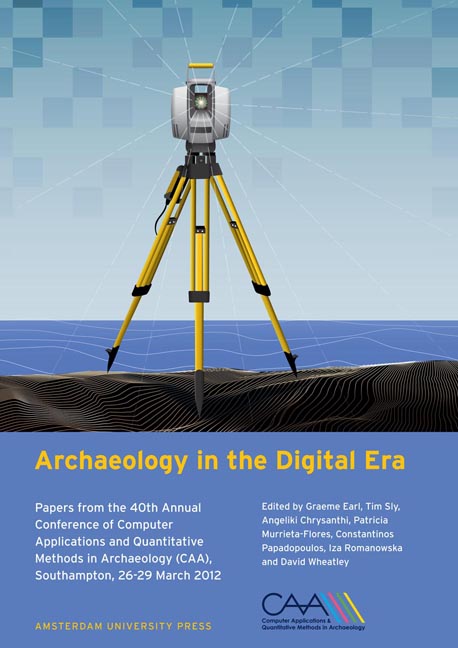 Archaeology in the Digital Era
Archaeology in the Digital Era The Virtual Museum: a Quest for the Standard Definition
Published online by Cambridge University Press: 16 February 2021
Summary
Abstract:
This paper aims to set theframework for the establishment of a standard definition of “virtual museum ”. To that end, it will firstly examine its philosophical roots. Then, it will propose a framework of classification and it will review previous taxonomies and definitions. Finally, it will suggest a new definition of the term which is based on the philosophical and etymological meaning of virtuality, and which complies with the learning principles of the New Museology. This specific definition, together with the top down approach implicitly proposed by this paper, is expected to help unfold the potential of Information and Communication Technologies (ICT) for Cultural Heritage (CH) museums.
Keywords:
Virtual Museum, Classification, Definition
Introduction
According to V-Must, a Network of Excellence funded by the 7th EU Framework Programme and purposefully devoted to the development of a specific research field about virtual museums (VM), these
“are personalized, immersive, interactive experiences that enhance our understanding of the world around us.”
The broadness of this definition, along with the diversity of the included typology, gives an idea of the disparity of concepts gathered under this label. The VM arose spontaneously from a mixing of traditional museum practices, semiotic modes, market tensions and diverse technological possibilities (Lorente and Kanellos 2010). On the other hand, in most cases, the development was lead by too technology-oriented perspectives (Kwon et al. 2003). As a consequence, it has become a complex notion that escapes from a shared definition. The same happens with the concept of Virtual Reality (VR), which stands at the confluence of the historical development of different fields. Although several definitions and theoretical frameworks have been proposed in the CH domain (Barcelo 2002; Champion 2005; Forte 2003), a standard definition has never been explicitly agreed. Instead, an assimilation with Virtual Heritage (VH) was spontaneously accepted and its use as a scientific simulation has been delayed several years.
Polysemy of concepts is a well accepted characteristic of the Social Sciences and especially of the Humanities, which favours the advancement of knowledge in these fields. However, in the case of applied research it may be counterproductive: if we do not know what a VM is, it is difficult to determine how successful individual projects are, and perhaps impossible to create evaluative methodologies across different projects that support funding policies. The goal of this paper is therefore to set the foundations for the establishment of a standard definition of VM.
- Type
- Chapter
- Information
- Archaeology in the Digital EraPapers from the 40th Annual Conference of Computer Applications and Quantitative Methods in Archaeology (CAA), Southampton, 26-29 March 2012, pp. 40 - 48Publisher: Amsterdam University PressPrint publication year: 2014
- 1
- Cited by
